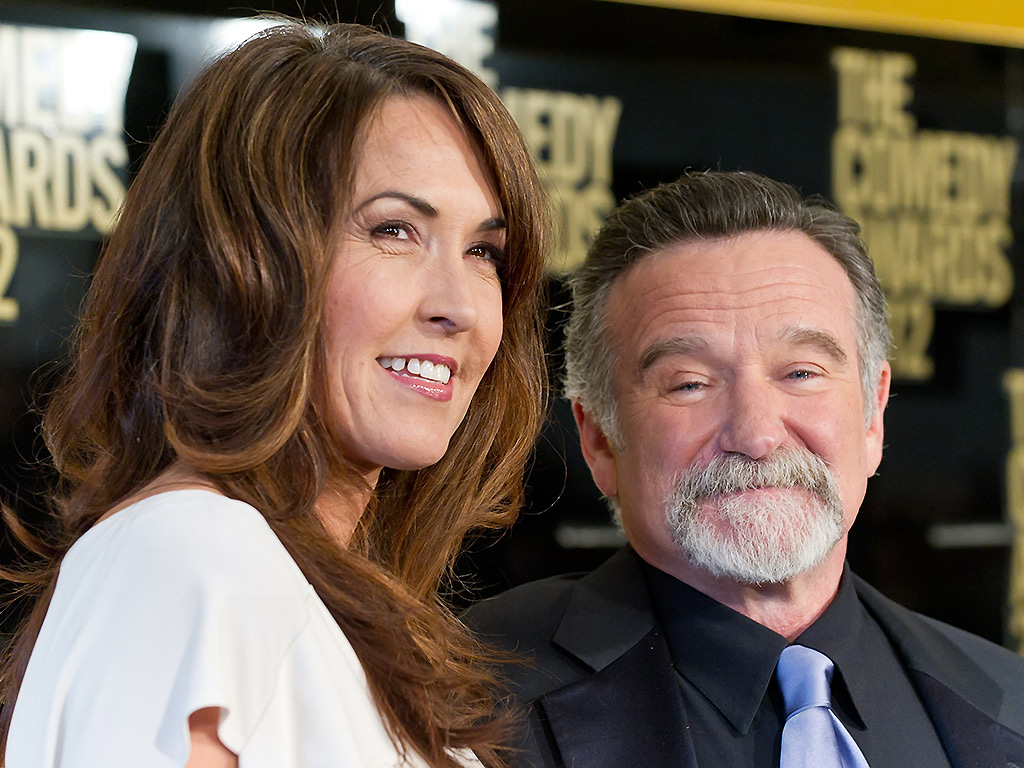The widow of late actor Robin Williams has written a heartfelt editorial for the medical journal Neurology.

Susan Schneider Williams writes that her husband’s suicide in the summer of 2014 came “at the end of an intense, confusing, and relatively swift persecution” from Lewy’s body disease (LBD), a form of dementia accounting for five – 15 per cent of all cases of dementia in Canada.
Robin’s case was severe, writes Schneider Williams.
“Not until the coroner’s report, 3 months after his death, would I learn that it was diffuse LBD that took him.”
“All 4 of the doctors I met with afterwards and who had reviewed his records indicated his was one of the worst pathologies they had seen,” she writes. “He had about 40 per cent loss of dopamine neurons and almost no neurons were free of Lewy bodies throughout the entire brain and brainstem.”
Schneider Williams says Robin had trouble remembering lines during the filming of one of his last movies, Night of the Museum 3, in the spring before his death.
READ MORE: Robin Williams’ wife, children head to court in fight over his belongings
She writes that his “loss of memory and inability to control his anxiety was devastating to him,” especially when he had entire plays memorized a mere five months before.
According to Schneider Williams, they tried multiple medications and made several incorrect diagnoses because the symptoms of LBD are so variant. One of the reasons she wrote the editorial is to get the word out about the disease, so people don’t immediately panic with confusion when their loved one is afflicted.
At first it was “constipation, urinary difficulty, heartburn, sleeplessness and insomnia, and a poor sense of smell,” and then two months later Robin was suffering from paranoia, delusions and looping, insomnia, memory, a high cortisol level and intense stomach discomfort.
“Robin was losing his mind and he was aware of it,” she writes. “Can you imagine the pain he felt as he experienced himself disintegrating? And not from something he would ever know the name of, or understand? Neither he, nor anyone could stop it — no amount of intelligence or love could hold it back. He kept saying, ‘I just want to reboot my brain.'”
Schneider’s emotional essay ends with a request to neurologists and doctors at large to not let Robin die in vain, and thanks them for all the work they’ve done regarding LBD.
READ MORE: Zelda Williams opens up about coping with father Robin Williams’ death
She says she’s sharing her experience in the hope doctors will be “inspired to turn Robin’s suffering into something meaningful.”
On the second anniversary of Robin’s death, his daughter Zelda opened up about the grief and hardships she experienced after the demise of her father.
“I didn’t really grow up in the spotlight — we lived in San Francisco — so for me, we were already kind of together and close. And so I just kept going, ‘OK, well, today I’m going to get up and love what I do. And then tomorrow I’m going to wake up and be happy and love what I do. And then the next day…’ because that’s all you can do,” she said.




Comments